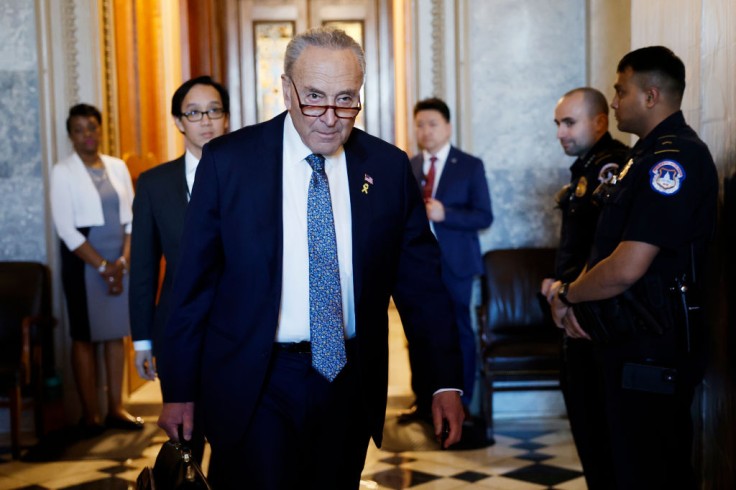
On Tuesday, April 23, the United States Senate voted 79-18 in favor of a bill that bundled a $95.3 billion foreign aid package with a provision that may lead to a nationwide ban on TikTok. While the bill reached the House of Representatives as four separate pieces, the Senate received the bill as a singular piece of legislation, packaging Ukraine, Taiwan, Israel and TikTok together.
Last Wednesday, the House voted on the individual TikTok bill, passing it in a 352-65-1 vote. The bill received bipartisan support, with politicians from across the aisle uniting over the call for ByteDance, the Chinese company that owns the platform, to divest its TikTok ownership within nine months.
Should ByteDance fail to sell the company within this allotted time, TikTok will be banned from American app marketplaces like Apple's App Store and Google's Google Play Store. Roughly 170 million Americans use the app.
Calls from the Capitol to ban TikTok are nothing new. In 2020, then-President Trump attempted to ban the app with an executive order that gave ByteDance 45 days to sell the company to a United States-owned business. Trump pushed for Microsoft to pick up TikTok, but no such deal occurred. The former president also sought to ban TikTok on the grounds of protecting the data of United States citizens from the Chinese government.
The executive order stated that TikTok's "data collection threatens to allow the Chinese Communist Party access to Americans' personal and proprietary information - potentially allowing China to track the locations of Federal employees and contractors, build dossiers of personal information for blackmail, and conduct corporate espionage."
TikTok, however, claimed that it stores "all data belonging to U.S. customers in facilities outside of China that are not subject to Chinese law."
Trump's attempted ban did not succeed, with TikTok remaining a product of ByteDance. However, successful attempts were made to better secure U.S. data.
TikTok partnered with Oracle, a massive software company which offers cloud platform services, as its U.S.-based "trusted technology partner." Oracle became a de facto auditor for the video-sharing app, inspecting source coded and related software, reviewing updates made to said software and the "exclusive ability to oversee all tech operations for TikTok in the U.S." Oracle founded Project Texas, a $1.5 billion "unprecedented initiative dedicated to making every American on TikTok feel safe, with confidence that their data is secure and the platform is free from outside influence."
In 2023, TikTok CEO Shou Zi Chew testified before the House Committee on Energy and Commerce, attempting to defend the company. He noted that ByteDance is a privately owned "global enterprise" company and not a government entity, but congress members remained skeptical.
Chew said that he had "seen no evidence that the Chinese government has access to [U.S. user] data." Congress continued to grill him, pointing to leaked documents from 2019 that showed that TikTok moderators censored certain videos that feature subjects "issues unfavourable to the Chinese government," such as Tiananmen Square or protests in Hong Kong.
A TikTok executive in 2020 openly admitted to the U.K. parliament that the platform had "some incidents where content was not allowed on the platform," specifically citing videos of Uighur Muslims being detained in Xinjiang. TikTok's pattern of hiding certain subjects from users has earned the app major accusations of censorship.
Fifteen Republican senators voted against the bill, including former presidential candidate Ted Cruz (R-TX.) Only two Democrats opposed the bill, Jeff Merkley (D-OR) and Peter Welch (D-VT,) with Bernie Sanders (I-VT) joining them.
Now, TikTok faces a legitimate threat from the Biden administration, with the President issuing a statement that he would sign the bill when it arrives on his desk today, April 24. In 2023, he banned the app from federal devices.
"I will sign this bill into law and address the American people as soon as it reaches my desk tomorrow," announced President Biden.
Should Biden sign the bill into action, TikTok will reportedly move towards legal action, per Bloomberg.
© 2025 MusicTimes.com All rights reserved. Do not reproduce without permission.







